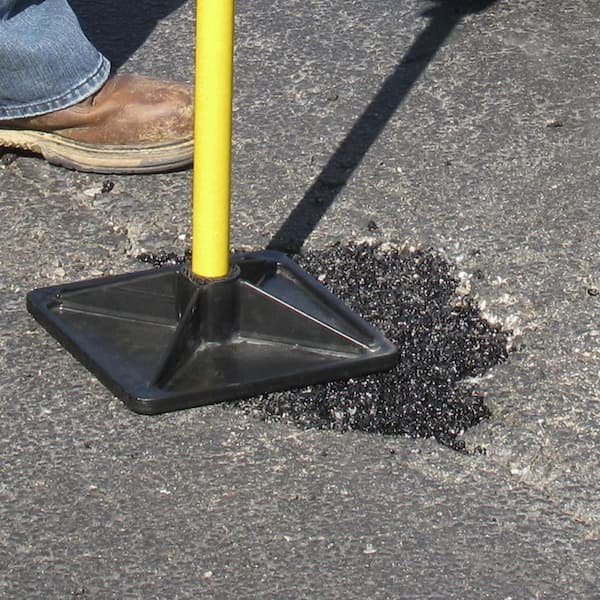Cold Mix Asphalt: Transforming the Way We Build Roads
As the framework field continues to develop, the use of cold mix asphalt offers an appealing shift in roadway building and construction methods. The ingenious properties of cool mix asphalt are difficult standard road-building practices, leading the way for improved performance and durability.
Advantages of Cold Mix Asphalt
What advantages does chilly mix asphalt deal over standard warm mix asphalt in road building projects? Cold mix asphalt offers numerous advantages that make it a preferred option in particular situations. One essential advantage is its capability to be used in all weather, unlike warm mix asphalt which requires particular temperature level problems for mixing and laying. This flexibility enables for year-round building and construction, decreasing task timelines and prices related to weather condition hold-ups.
Furthermore, cold mix asphalt is much more eco pleasant as it needs much less power for manufacturing and sends out reduced levels of greenhouse gases compared to hot mix asphalt. These advantages combined make cold mix asphalt a versatile and efficient selection for different road construction jobs.

Environmental Benefits
One of the vital environmental benefits of cool mix asphalt is its lower carbon impact compared to warm mix asphalt. Additionally, cool mix asphalt is commonly made using recycled products such as redeemed asphalt sidewalk (RAP) and recycled asphalt tiles (RAS), further lowering the demand for brand-new raw products and diverting waste from landfills.
Furthermore, the usage of cold mix asphalt can bring about decreased energy usage throughout building as a result of its ability to be applied using standard tools without the need for extra home heating procedures. This not just lowers fuel consumption however additionally decreases air pollution and enhances air top quality in the surrounding areas. By selecting chilly mix asphalt for roadway projects, building companies can make a positive influence on the environment while still making certain durable and high-grade roadway surface areas.
Convenience in Climate Condition
In roadway building and construction tasks, the convenience of cool mix asphalt in various weather enhances its practicality and effectiveness. Unlike hot mix asphalt, which calls for heats throughout blending and setup, chilly mix asphalt can be used in a vast array of climate problems. Asphalt Repair. This versatility makes it a useful alternative for roadway building and construction in areas with severe temperatures or unpredictable climate patterns
Cold mix asphalt remains workable also in cool weather condition, enabling construction jobs to continue throughout wintertime months when hot mix asphalt may not be a viable option. Its capacity to establish and cure without the need for heats ensures that roadway upkeep and repair work can be performed year-round, lessening interruptions to web traffic flow and lowering general project timelines.
In addition, cool mix asphalt's strength to wetness makes it ideal for areas prone to regular rain or high humidity. Its versatility and sturdiness allow it to stand up to expansion and contraction brought on by temperature level fluctuations, adding to longer-lasting roadways that need fewer repair services over time. Generally, the versatility of chilly mix asphalt in different weather makes it a reliable option for reliable and sustainable road building tasks.

Cost-Effectiveness and Sustainability
Taking into consideration the financial and environmental impacts of road construction materials, how does the cost-effectiveness and sustainability of cold mix asphalt compare to traditional alternatives? In terms of cost-effectiveness, cold mix asphalt typically needs reduced manufacturing temperature levels, minimizing power usage and production expenses compared to warm mix asphalt.
The capacity to recycle existing products right into chilly mix asphalt adds to a circular economic situation method, reducing the requirement for virgin products and reducing total environmental influence. Overall, the cost-effectiveness and sustainability of chilly mix asphalt make it an find out appealing option to typical road building and construction materials.
Effect On Roadway Toughness
Road sturdiness dramatically influences the long-term performance and maintenance requirements of asphalt pavements. Cold mix asphalt, with its distinct attributes, has a remarkable impact on roadway toughness. One vital facet is the capacity of cool mix asphalt to withstand temperature fluctuations without endangering its architectural honesty. This adaptability aids the sidewalk to stand up to fracturing and rutting caused by changing weather conditions, resulting in a longer solution life for the roadway.
Additionally, the chilly mix asphalt's improved resistance to dampness damage plays a crucial duty in keeping roadway longevity. Typical hot mix asphalt is much more susceptible to dampness infiltration, which can deteriorate the pavement framework gradually. In contrast, cool mix asphalt's structure allows it to better stand up to water penetration, reducing the chance of craters and various other forms of wear and tear.
Final Thought
In conclusion, cool mix asphalt uses a multitude of advantages for road website here building, consisting of ecological advantages, convenience in weather condition problems, cost-effectiveness, and enhanced roadway sturdiness. Its ability to be made use of year-round and its sustainable techniques make it a transformative option for developing roads that are both ecologically pleasant and durable. With its ingenious approach and lasting outcomes, cold mix asphalt is transforming the means we build roads for a much more lasting future.
What advantages does chilly mix asphalt offer over traditional hot mix asphalt in roadway construction jobs? Furthermore, cool mix asphalt is more eco pleasant as it calls for less energy for production and sends out lower levels of greenhouse gases compared to warm mix asphalt. Asphalt Repair. Additionally, chilly mix asphalt is commonly made using recycled materials such as reclaimed asphalt pavement (RAP) and recycled asphalt roof shingles (RAS), more minimizing the need for brand-new raw products and drawing away waste from landfills
Unlike hot mix asphalt, which requires high temperatures throughout blending and installation, cold mix asphalt moved here can be used in a broad variety of weather condition problems. In terms of cost-effectiveness, chilly mix asphalt normally calls for reduced manufacturing temperature levels, minimizing power consumption and manufacturing prices contrasted to warm mix asphalt.